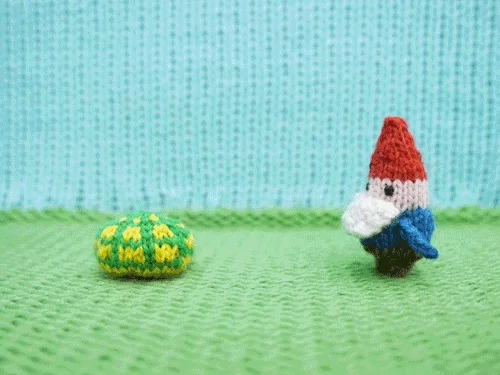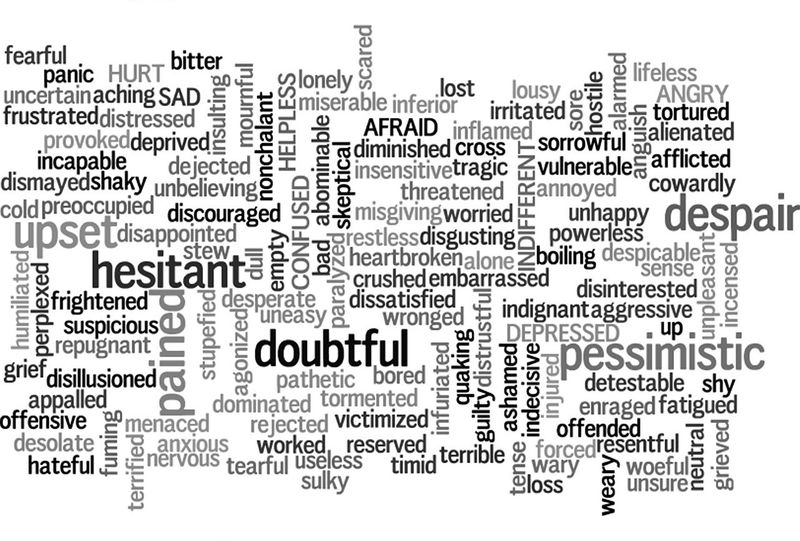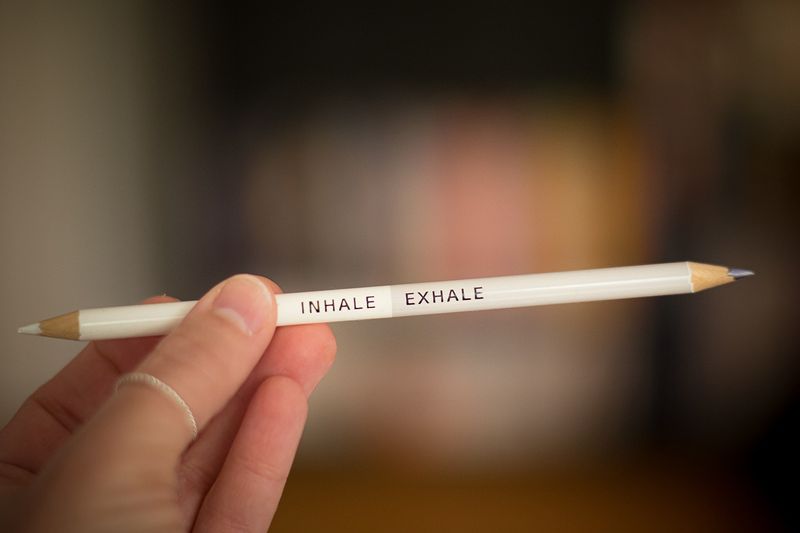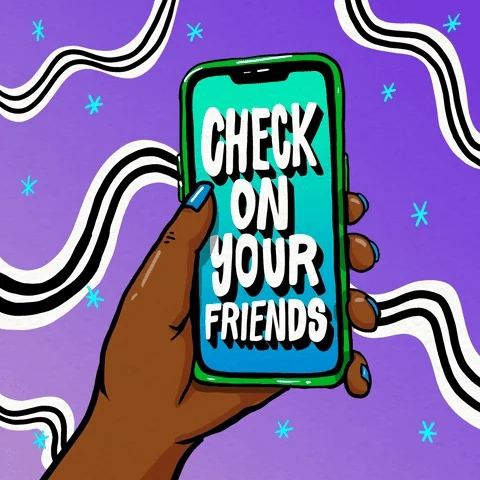Rei and Kara had talked about hanging out this weekend, but Kara’s not responding to any of Rei’s text or voice messages now. Rei’s starting to think she’s done something to upset Kara. But their mutual friends say that Kara has been ghosting them, too.

The last few times they talked, Rei thought Kara seemed anxious and nervous, worrying about everything. She thinks Kara is probably living with an anxiety disorder but doesn't know what to do.
Does this story sound familiar? Do you have an anxious friend and want to help them?
If so, the following strategies might help your anxious friend.
1. Learn about it
Having an idea of what your friend may be experiencing is the first step in learning how to support them.
A good place to start is by asking, "What is an anxiety disorder?"
Feeling anxious about something is an experience that we all share. But when anxiety disrupts daily life, it becomes more than just everyday anxiety and can make simple day-to-day life feel overwhelming.
Check out this video from the Anxiety & Depression Association of America to learn more:
Recognizing the signs and symptoms can also help. You can find a list of common symptoms in this article on helping someone with anxiety by Joseph McGuire, Ph.D., from Johns Hopkins Medicine.
2. Reach out to your friend
Don’t wait for them to make the first move. When someone is living with an anxiety disorder, initiating a conversation or talking about it can feel overwhelming.

You can lighten their load by:
checking in on them regularly
listening & empathizing (without trying to fix them) when they share how they’re feeling
encouraging them to do some light physical activity
asking your friend how you can support them
My story:
Anxiety and I are not strangers. No...we're long-time acquaintances. Thankfully, it doesn’t come to visit much anymore. But back when it did, it could take over the spaces in my life (thoughts, actions, will, etc.) so much so that it was the only thing I could see.
I remember during a particluarly long visit by anxiety, a friend would check on me several times a week. She’d message or call, 'just to see how I was doing,' and would listen without pressure.
More often than not, by the time we got off the phone, I’d be laughing and feel more able to face life. Her calls and messages were bright lights for me and helped me see beyond the anxiety.
3. Validate & encourage them
Telling your friend to “stop being so afraid,” “to get over it,” or that “it’s not that big of a deal” belittles what they’re experiencing.
Instead...
Try to understand and acknowledge that their feelings are very real to them.
Encourage them that their anxiety doesn’t make them weak, defective, or worthless.
 Public domain image courtesy of Narcisso 1 via Psychology Today
Public domain image courtesy of Narcisso 1 via Psychology Today
Which of the statements below are encouraging or validating statements?
 I’m afraid of heights, too, so let’s tackle this climb together.
I’m afraid of heights, too, so let’s tackle this climb together.
 I don’t understand why this is so difficult for you. No one else has a problem with it.
I don’t understand why this is so difficult for you. No one else has a problem with it.
 You’re stronger than you think. You can do this.
You’re stronger than you think. You can do this.
 That situation does sound overwhelming.
That situation does sound overwhelming.
Quiz
Which statements are encouraging or validating? Select all that apply:
4. Celebrate the small victories
Even the smallest tasks, like stepping outside of their house or sending an email, may feel overwhelming to someone with anxiety. Encourage & celebrate even these small victories that your friend overcomes.

Be sure to keep your friend's anxiety in mind, though. Taking them to a live concert might not be the best reward for them.
Try to think of simple things your friend enjoys. You might consider celebrating by:
ordering dinner and watching their favorite movie together
getting a small gift for them, like flowers
telling them how proud you are of them
For more ideas on celebrating small victories, take a look at The Power of Celebrating Small Wins: A Key to Stress Management,a LinkedIn blog post by Madhurima Sappatti.
Quiz
Your anxious friend has been ghosting you all week, but they show up to a mutual friend’s birthday party on the weekend. What should you do when you see them there? Select all that apply:
5. Encourage & help them find a trained professional
No matter how smart, loving, or patient you are, don’t expect to be able to eliminate your friend’s anxiety by yourself. Sometimes, the most loving thing to do is to help them find a therapist who can treat their anxiety disorder.
 Photo by Viktor Mogilat on Unsplash
Photo by Viktor Mogilat on UnsplashHere are some resources to help you and your friend as you look for a counsellor, therapist, psychologist, or psychiatrist:
6. Don’t forget about yourself
When we’re so focused on supporting our anxious friend, we can get lost in the process. Sometimes, a necessary way to support your friend is to take care of yourself.
 Image courtesy of Pixabay
Image courtesy of Pixabay
Things to consider:
Talk to someone. Always being supportive can be challenging, so it's important to have someone (a friend, relative, or counselor) who can offer you support as well.
Set boundaries with your friend when necessary. For some of us, this can be difficult. But I've found that saying "no" to my friend sometimes means I'm able to say "yes" to myself.
Take time to recharge. What makes you happy or refreshed? Watching a movie with a friend, going for a walk in the park, or taking a nap? Whatever it is, make sure to make time for yourself.
Take Action

Your feedback matters to us.
This Byte helped me better understand the topic.
